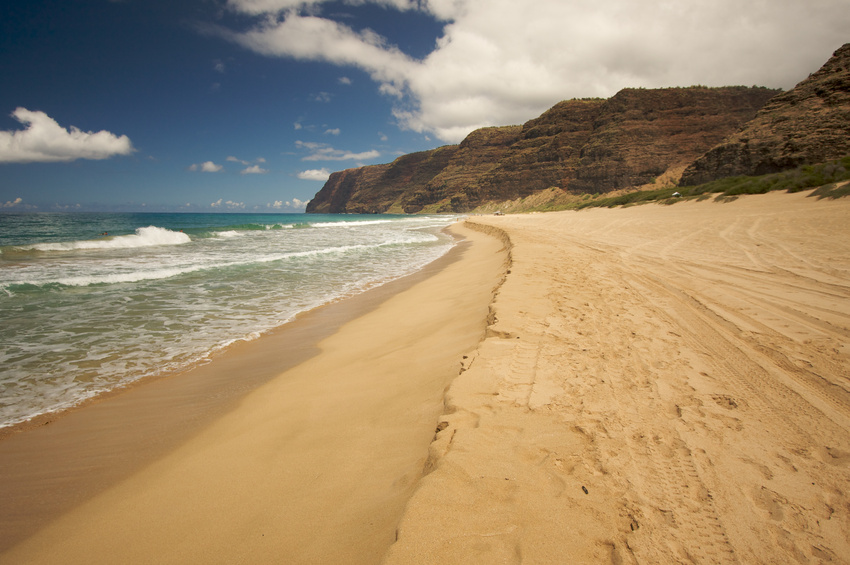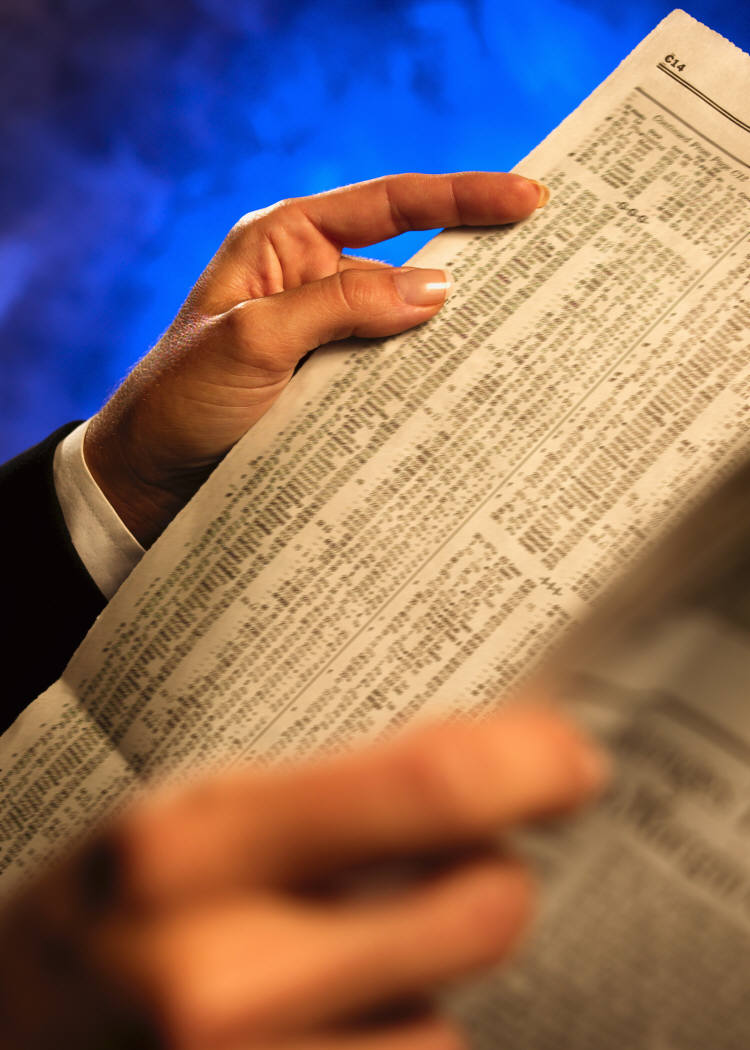Hawaii’s splendid isolation has contributed so much to the character of the islands. Our island paradise owes much to it, as does our culture of family and “aloha spirit.â€Â On the other hand, those on the mainland have only the slightest acquaintance with the political and social issues we struggle with, and it’s easy for the most complicated and contentious issue to be reduced to static and soundbites by the time they reach Washington, DC. And that’s how the Akaka Bill, a socially divisive, culturally transformative piece of legislation, gets reduced to “a nice little thing for Native Hawaiians†by the time it hits the beltway. Few people outside of the Islands know much of our history, and even fewer know much about the Office of Hawaiian Affairs, the Bishop Estate Trust, Kamehameha Schools, or any of the ways that the fight over the Akaka Bill is affecting Hawaii.
And for a perfect moment that really crystallizes the harm that the Akaka mentality is causing in our Islands, one need go no further than the recent exchange between Jere Krischel, an activist and member of the Grassroot Institute of Hawaii and Rowena Akana, a Trustee-at-Large for the Office of Hawaiian Affairs.
The interchange began when Ms. Akana used the bully pulpit of her column in OHA’s monthly newspaper to attack the Grassroot Institute and Mr. Krischel for their opposition to the Akaka Bill—specifically for Mr. Krischel’s statement that the Akaka Bill, “racially segregate families and communities into groups with different rights based on whether or not they have Hawaiian blood.â€Â Though Akana called this “ridiculous,†she made no effort to defend her position, instead devolving into ad hominem attacks and invective. She makes the absurd claim that the Grassroot Institute has no roots in Hawaii, and goes on to make the outrageous statement that, “Krischel and his ilk are the foreigners and they are the racists! They need to go back to where they came from and take with them their racist attitude. We don’t need them to spoil our Hawaii.â€Â As Mr. Krischel is from Hawaii, it leaves one to wonder where she would like him to go “back to.”
It should be unnecessary to treat such obvious slander seriously, but for the record, Grassroot Institute is a member of a national policy network, but has been active in Hawaii, on Hawaii’s issues, since it was founded here in 2001. Mr. Krischel was born in Hawaii, went to Punahou, had a paper route in Wahiawa, and picked pineapple for Del Monte as a summer and weekend job. What’s truly outrageous is that Ms. Akana takes the position from the outset that a.) One must pass some sort of “Hawaiian-enough†litmus test before one even dares to express an opinion on the Akaka Bill—a Bill that (let’s not forget) affects all of Hawaii and not only Native Hawaiians); and that b.) Anyone expressing a negative opinion of the Akaka Bill is a racist who needs to get out of Hawaii.
No wonder those who oppose the Akaka Bill state that it will result in a destructive level of racial division in the Islands. It seems to have a head start on that even without being passed.
In response to Ms. Akana’s column, Mr. Krischel wrote a letter taking exception to her insults, asking for an apology for her accusations of racism, and explaining his motives for his opposition to the Akaka Bill. Krischel writes:
First and foremost, as a human of many ethnicities and nationalities, I have a strong aversion to any racial categorization. The thought of being defined by one’s ancestry is anathema to me. Although some may wish to label themselves “indigenous” to one area or another, it is my firm belief that ultimately we are all descendants of immigrants and indigenous to the planet earth, and we should treat one another with equality and respect no matter where the bones of our ancestors are interred.
As an American, from a country with a history born of the rejection of hereditary title and monarchy, I strongly believe in the ideals of human equality. Although the United States has not always been perfect in implementing the 14th amendment, it is an ideal to which I believe we should all aspire
. . . .
As a scholar, I also have a strong interest in Hawaiian history, which has been further sparked by my recent participation in the debate over the issues of the 1893 overthrow, race-based government programs in Hawai`i, and the impending Akaka Bill. My father, Walter Benavitz, was a member of the Polynesian Voyaging Society, and participated in the 1987 tour of the Hokule`a. My school, Punahou, was a place of history drawing back to 1841 with a strong Hawaiian studies component.
All of these motivations brought me to the decision that I could no longer remain silent, and allow the racial supremists to dominate the dialogue. Witnessing the current tone and tenor of particular extremists on the issue, those activists inspired the “activist” within me.
It is my sincere hope that with enough constructive discussion, we can overcome our frailties, realize the complexity of “historical truth”, and move beyond the politics of identity. We can and should live in a world that tackles humanitarian issues in a needs-based, race-blind manner.
Ms. Akana’s response to Mr. Krischel’s letter did not do much to continue an open dialogue, rather instructing him to read a number of books meant to open his eyes to the innate racism of his background and the Islands. She points out that racist attitudes existed in the Islands far into the 20th century (an issue that was not up for debate), and suggests (no doubt to the surprise of Punahou grads everywhere, including—one might think—our current President) that Punahou is an example of that tradition of racism and privilege by pointing out that, “Punahou School was started by the missionaries who did not want to have their children go to school with any Hawaiian or any other minority.â€Â In her short instruction of Mr. Krischel in her reply, she states that, “You obviously are oblivious not only to Hawaiian History but also to the history of the Japanese and other immigrants who came to Hawaii to work and live.  Otherwise, you wouldn’t be so pie in the sky pious with your attitudes.â€
In his response, Mr. Krischel deals with the issues of race and historical examples presented by Akana, pointing out that they further emphasize his belief that any race-based policy would be a mistake. Krischel writes:
For example, the fact that Japanese and Chinese immigrants, who were the only ones ever treated like second class citizens under law (see the 1887 Constitution of Hawaii which took away the right to vote from Asians), would be excluded from Hawaiian programs and race-based governments seems like adding insult to injury. Â My clear understanding of the history of immigration and institutionalized racial discrimination in the past (including race-based pay which put haoles and native Hawaiians on top, Portuguese second, and chinese, japanese and filipino at the bottom), makes me ever more adamant that we should avoid such racial qualifications in the future.
. . . .
if at some point in history someone was racially discriminated against, we don’t achieve justice by racially discriminating against others today. Â The answer is to remove *all* racial qualifications from *all* laws and government regulations, and to treat people as equals in both blood and spirit now and forevermore. Â The fact that you could somehow interpret my demand for racial equality as some sort of hidden racism just doesn’t seem rational at all, and is why I must insist on an apology from you.
I hope you understand very clearly that the Akaka Bill, and any government program which decides a person’s worth based upon their racial heritage rather than on their individuality, is poisonous, and just as bad, if not worse, than all of the injustices you listed in your reply to me. Â While indulging in a spirit of revenge against others may offer some cynical satisfaction, it’s destructive both to the self, and to society. Â I clearly understand that the world has not always been a kind place to everyone, and that even in Hawaii, we’ve had many injustices in the past (even before western contact in 1778, when the ali’i ruled supreme and the kauwa served as a permanent slave class). Â But the evils of the past do not justify more evil in the present.
I believe Hawaii is a model for the world because as far back as 1840, our constitution declared that all people were “of one blood”. Â I believe Hawaii is a model for the world because the Kamehameha Dynasty turned a stone age society into a modern Kingdom in less than a generation by embracing Western ideals, technology and society. Â I believe Hawaii is a model for the world because despite the rough patches of our history, we are more kapakahi than anywhere else, and in choosing who we will love and have children with, we ignore race with a passion unmatched anywhere else that I know of.
I also believe that what you currently support in the Akaka Bill, and in the preservation of existing race-based programs in Hawaii, including many OHA programs, threatens very deeply what makes Hawaii so special.
Ms. Akana’s next (and final) letter is very short. She states that, “When no reparations or any compensation is given for taking or the stealing of Native lands, Natives have every right to seek justice.â€Â She does not explain how this position fits into the existence of the Bishop Estate Trust or Hawaiian Homelands. Ms. Akana then declines to continue the conversation. At no point does she apologize for calling Mr. Krischel a racist.
Mr. Krischel’s reply to Ms. Akana’s final letter are an eloquent examination of the problem with the language of grievance that Ms. Akana employs as her primary argument:
I’ll respectfully remind you that like many others without any ancestors in Hawaii before 1778, I was born in Hawaii, and didn’t migrate here from *anywhere* else. Â If you want to point out that my ancestors migrated here from somewhere else over a hundred years ago, I’ll point out that the same is true of the few Marquesans and/or Tahitians in your ancestry who migrated here before Captain Cook arrived in 1778. Â The “a small fraction of my ancestors were here before yours were” argument is hardly the basis for any form of government, or appropriate for deciding how to apportion resources between people.
Furthermore, your argument regarding Native Alaskans and Native Americans is fatally flawed and based on a terrible, yet apparently very common, misunderstanding of Indian Law by Akaka Bill supporters. Â Native Alaskans and Native Americans do not have any sort of claim on the US based on their bloodline, and my non-tribal part-Cherokee son can attest to that. Â There may be federally recognized *tribes* (including the Cherokee Freedmen, who have African American ancestors, and often don’t have any Native American ones), but there is no recognition for someone simply because their ancestors lived somewhere before western contact, which is what the Akaka Bill proposes. Â Most Native Alaskans and Native Americans, including my son, aren’t part of any tribe at all, and are treated the same way as other non-tribal citizens are. Â Particularly for Hawaii, where the Kingdom nobly declared in 1840 that all people were “of one blood”, and made no distinction between natives and non-natives, creating a new political relationship based on blood is simply racism, pure and simple.
Lastly, there was no “taking or stealing” of Native lands. Â You may despise the ali’i for giving away vast tracts of land to their European supporters during the Kingdom Period, and you may despise those native Hawaiians who sold their kuleana lands to non-natives after the Great Mahele, but nothing was taken, and nothing was stolen. Â Your pursuit of “justice” here, specifically on the basis of bloodline, is terribly misinformed and ignores the true history of the land.
Now, if you’ve got any sort of specific information about a specific acre of land, that was stolen from a specific person, by a specific person, at any specific time in the history of the Kingdom, Republic, Territory or State of Hawaii, please, share with me – I would love to learn if you have something to teach, and with specifics we can work towards rectifying things without any appeal to race. Â But simply waving one’s hands and declaring that you, based simply on your bloodline, deserve some sort of reparation or compensation from me, for some unspecified piece of land supposedly stolen from a native Hawaiian by some unspecified person at some unspecified time, is not a rational argument, especially considering that my non-native ancestors in Hawaii, by your own citations in your first reply, were terribly discriminated against and exploited. Â The children of ali’i asking for reparation and compensation from the children of plantation laborers seems distasteful on every level imaginable.
It is no coincidence that the more people learn about the Akaka Bill, the less comfortable they are with it.  Initially swayed by the praiseworthy desire to do something good for Native Hawaiians, the public has been mislead by the Rowena Akanas of this world into thinking that this is a simple “reparations†issue. But as Jere’s examination of Hawaiian history and the philosophical problems with race-based policies demonstrate, the Akaka Bill actually takes Hawaii in the wrong direction. And the attempts of Ms. Akana to shut down all argument through invective, accusations of racism, and faulty history are an example of just how far the Akaka Bill can take us away from Hawaii’s spirit of aloha and ohana.
To read the full exchange between Jere Krischel and Rowena Akana, click here.








